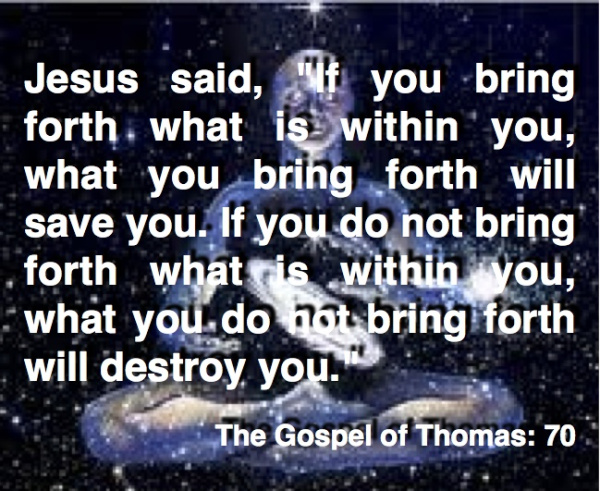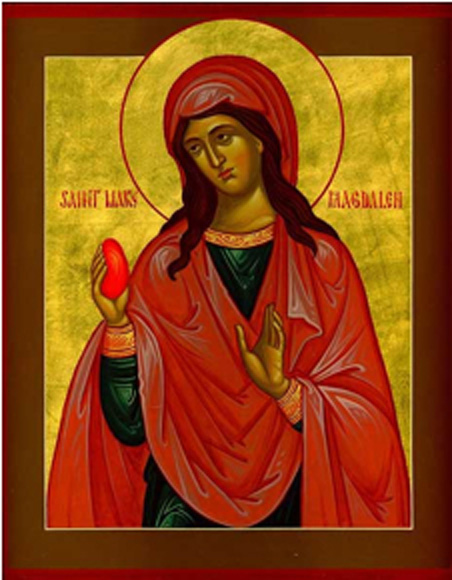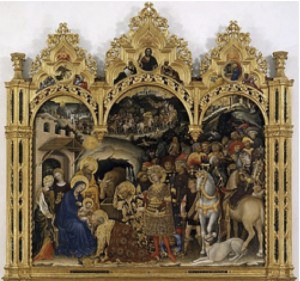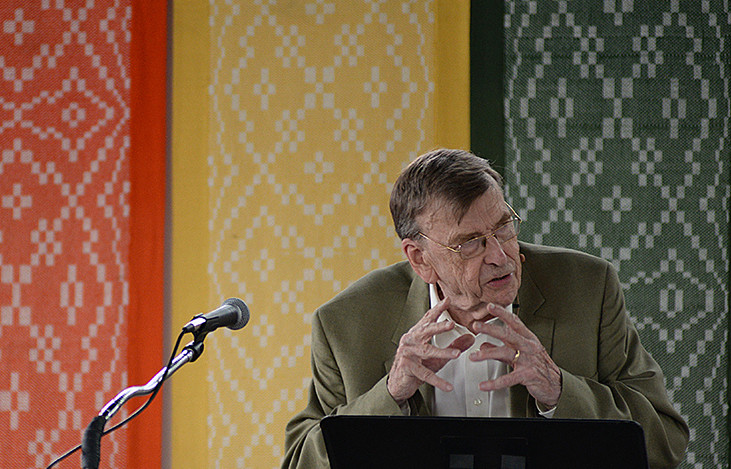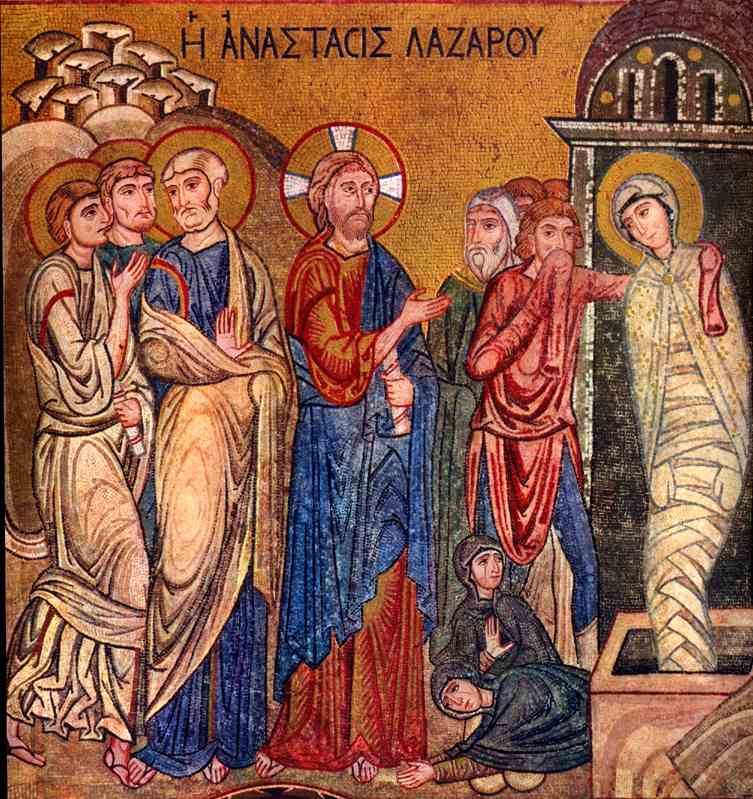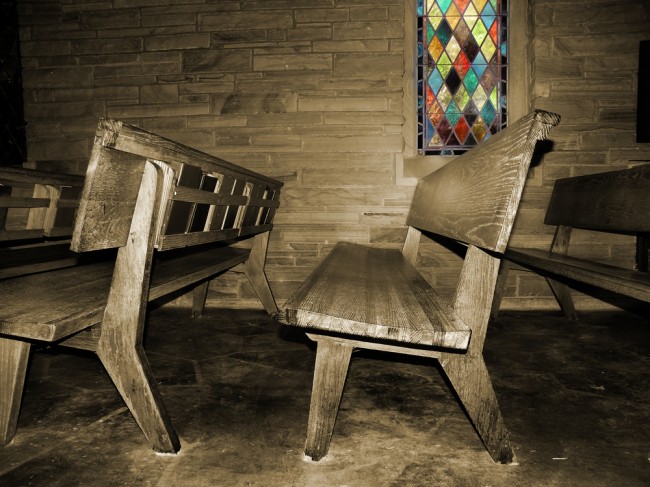A sermon preached on the Second Sunday after Christmas – the readings for this sermon include: John 1:1-9, The Gospel of Thomas 70; Matthew 2:1-12.
Mary Magdalene was the first person, male or female, to witness the empty tomb…the first to see angels who reported the resurrection…the
Homecoming after a splendid summer respite. Readings Proverbs 1:20-23; Ephesians 4:11-13 and John 8:30-32. I am indebted to Peter Rollins for his excellent insights into the need for church to be a place where we consult our suffering.
The challenge for a progressive Christian who has moved beyond such notions as virgin births and gods disguised in human form come to save us from ourselves is to remember that it is as much a historical development, as it is a theological one. That is, the attribution of a “Christ” title accorded a very human Jesus constitutes the imaginations -- if not machinations -- of an early Church; consisting of very human, second-generation followers of a 1st century Galilean peasant sage and itinerant preacher. And who all but drowned out the authentic voice of the one who was once born and dwelt among humankind. Such an assertion is simply based on the fact the historical Jesus never self-identified as the “anointed one,” the Christ. As such, if one were to remove the Christ-title from the various birth narratives of those secondary traditions of this religious movement, what would remain of the “Christmas story” that has become as prevalently assumed, as it has been unexamined? If we took the Christ out of Christmas, what might remain of the voice of one who was born and dwelt among us? You can read more here.
John Shelby Spong continues his 5 day lecture series. He explains the colorful characters who hold dual purpose in the fourth Gospel.
Jesus says, “Let not your hearts be troubled.” He is not telling them to not be sad, but rather, to not be frustrated and fearful. Jesus himself struggled with this according to John’s account. Three times John says Jesus was troubled: at the death of Lazarus, when he contemplated his own death, and when he realized that his own disciples would betray and desert him in his final hour.
Jesus wants his disciples to know that their betrayal, their breach of covenant loyalty, did not dissolve the covenant, did not result in their rejection. They are loved and accepted. This is where we all have to start or, perhaps, come back to – that we are accepted in spite of all our failures and betrayals, that we are accepted even though we do not deserve to be accepted. But to claim acceptance for ourselves means that we have to claim acceptance for everyone else. God’s gift of peace is not just for our group, it’s for the cosmos, and we who have heard that word and accepted it, are called by God to spread that word
The power of life that raised Jesus is accessible and available to all people, even those who have not heard of Jesus. The risen Christ, the cosmic Christ who is Lord of all can take many forms and answer to many names. Our text says that God shows no partiality, that anyone who fears God, and that does not mean to be afraid of God, but anyone who respects and honors God, and anyone who does what is right, anyone who does what is just and good and compassionate shares in the life of the risen Christ.
It’s always ourselves we find in the sea. We find that Self, quite often, by unfinding. By recognizing what is not who we really are. When you go to the beach, you have to leave a lot behind. Half the fun of it is reducing your belongings to what fits in a wicker basket, and wearing as little clothing as possible. And when you get into the water, there’s no carrying the wicker basket. Or even the flip-flops. Is this not the work of ministry – the work of pastoring? To teach people to swim – to move freely and joyfully in the waters of the soul, unburdened by all the baggage of habit and culture. To help people shed their assumptions, drop their dead dogma on the sand, and soak up the sun of love and peace and total acceptance?
Community Christian Church of Springfield
The miracles in the New Testament are called "signs." They are metaphors for the Kingdom. In John 5, Jesus heals a man who has been looking at his source of healing, a pool that this sermon titles "the hospital" but the rules are such that he cannot get in to be healed. Jesus breaks through that injustice to bring healing to the one who needs it the most, without an insurance card, without proof of employment or citizenship. And that is what the faith community is called to do: to break the rules that bar the sick from health care, that favors banks over homeowners and corporate profits over the interests of those who need air and water that has not been polluted.
The Gift of Mortality
Avowed atheist Susan Jacoby recently created a dust up with a recent article in the New York Times Sunday Review entitled, “The Blessings of Atheism.” She wrote in response to all the god-talk that appeared in the immediate aftermath of the Newtown massacre; with all those unanswerable questions or inadequate answers to human suffering and death so often peddled in popular religious belief. So too, not long ago author and “non-believer,” Christopher Hitchen’s posthumously published his little book Mortality; recounting his rambling thoughts on his own imminent demise; after a terminal diagnosis left him a sufficient number of days to find himself “deported from the country of the well across the stark frontier that marks off the land of malady.” But what, or where to, after that? What if this really is all there is? It seems there has always been the human hankering to imagine all kinds of fanciful notions, in our attempts to recapitulate our mortal existence into something more than it is. Many religious traditions, including centuries of “mainline” orthodox Christianity, employ great mythic stories to describe a life subsumed into something greater than we can either know, or grasp, except by “faith.” Heaven knows, some folks try to better themselves, merely in the hope of a remote possibility there something more, after our death, which is a certainty. But in the end, is it all dust and ashes? And is that OK? This is the liturgical time of year when many in the Christian tradition undergo a seasonal pilgrimage in which the faithful are reminded at the onset we mortals are nothing more than dust. And so we will one day return to that from whence we came. Then the traditional forty days end with the perennial re-enactment of a passion play commemorating the mortal demise of the one whom Christians even these many centuries later would profess to follow. Many do so in the hope of some kind of immortality for themselves in some indecipherable form or other; attributing to Jesus a “resurrection” that means the same thing to them as god-like immortality; while others of us may find such imaginings to be not only reasonably implausible, but of less importance than what we take to be of greater significance and meaning in this faith tradition. Otherwise, the vainglorious hope of immortality can become so enshrouded in our mortal fears that we become – like Lazarus in his early grave – so wrapped up in death that we fail to truly acknowledge and appreciate the gift of our mortality for what it is; nothing more, nor less. With the certain assurance then that we are but dust and ash, we can ask ourselves if the gift of our mortality is not only enough, but more than enough? And if so, as the psalmist says, how then shall we “number our days, that we may apply our hearts to wisdom?” (Psalm 90:12)
Traditionally this is a time to learn from our mistakes and commit ourselves to do differently in the new year. I wonder what
I simply do not believe that at this point in time the distinctiveness of our different churches is more important than the values and common understandings of Scripture that unite us.
By: Gary Wiburn. Last week I spoke of our defining identity here at First Presbyterian as being four things: a Christ-Centered faith, a place of Creative Celebration, of Compassionate Caring, and Inclusive Community. These are some of the primary ways in which we understand ourselves as a Center for Progressive Christianity, which means nothing less than trying to embrace the essential teachings of Jesus.
The following is a message by Rev. Roger Wolsey of Wesley Chapel in Boulder, CO is inspired by the resurrection stories in Mark, Matthew, Luke, and John; the book The Powers that Be by Walter Wink; and the book The Last Week by Marcus Borg & John Dominic Crossan. A few paragraphs are adapted from the last chapter of Jim Wallis' The Call to Conversion.
I trust it will come as news to very few that the canonical gospels offer us two Christmas stories, and to those who have actually read the accounts it is clear that the two bear little resemblance to one another. To be sure, the names of the infant, his mother, his nominal father, and the place of birth are the same; but nearly all the other details stand in striking and irreconcilable conflict. Does this mean that Matthew’s narrative or Luke’s—or both—are simply to be rejected as wildly unreliable? Not if we adopt the strategy of understanding the two tales not as failed attempts at history, but as brilliantly conceived and wonderfully effective parables.
Jesus proclaimed an astonishing Gospel! But, isn't it strange that his harshest criticisms were directed at those within the religious community? He said, "Woe to you, scribes and Pharisees, hypocrites, because you shut up the kingdom of heaven from men, for you do not enter in yourselves, nor do you allow those who are entering to go in" (Matt. 23:13).
Text: John 10:1-10 During World War II the famous American pilot, Captain Eddie Rickenbacker, was flying on a special mission to the Pacific
Readings: Genesis 12:1-4a John 3:1-17 We have before us this morning what I would consider one of the most misused, misunderstood texts in

